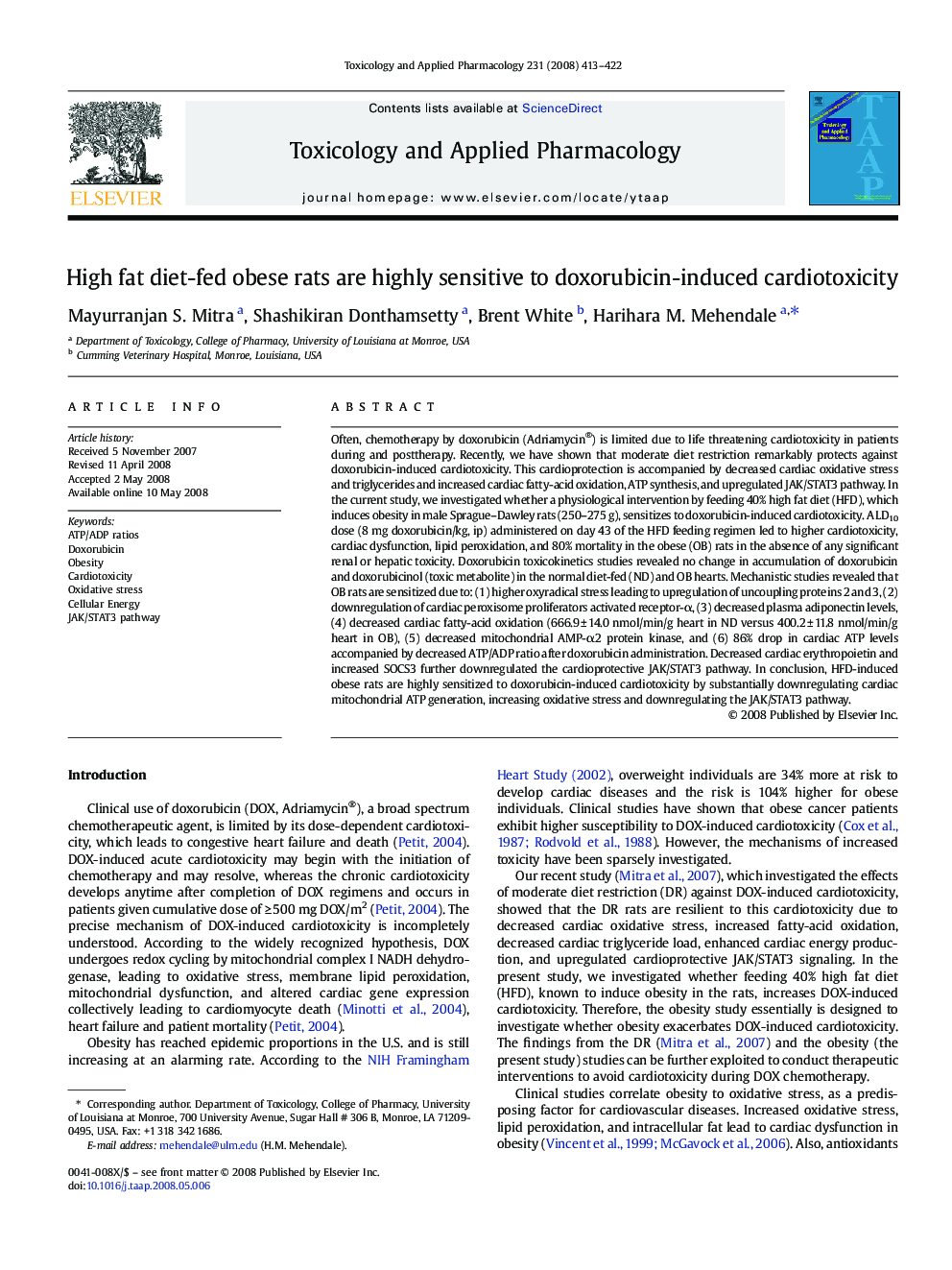| کد مقاله | کد نشریه | سال انتشار | مقاله انگلیسی | نسخه تمام متن |
|---|---|---|---|---|
| 2571092 | 1128616 | 2008 | 10 صفحه PDF | دانلود رایگان |

Often, chemotherapy by doxorubicin (Adriamycin®) is limited due to life threatening cardiotoxicity in patients during and posttherapy. Recently, we have shown that moderate diet restriction remarkably protects against doxorubicin-induced cardiotoxicity. This cardioprotection is accompanied by decreased cardiac oxidative stress and triglycerides and increased cardiac fatty-acid oxidation, ATP synthesis, and upregulated JAK/STAT3 pathway. In the current study, we investigated whether a physiological intervention by feeding 40% high fat diet (HFD), which induces obesity in male Sprague–Dawley rats (250–275 g), sensitizes to doxorubicin-induced cardiotoxicity. A LD10 dose (8 mg doxorubicin/kg, ip) administered on day 43 of the HFD feeding regimen led to higher cardiotoxicity, cardiac dysfunction, lipid peroxidation, and 80% mortality in the obese (OB) rats in the absence of any significant renal or hepatic toxicity. Doxorubicin toxicokinetics studies revealed no change in accumulation of doxorubicin and doxorubicinol (toxic metabolite) in the normal diet-fed (ND) and OB hearts. Mechanistic studies revealed that OB rats are sensitized due to: (1) higher oxyradical stress leading to upregulation of uncoupling proteins 2 and 3, (2) downregulation of cardiac peroxisome proliferators activated receptor-α, (3) decreased plasma adiponectin levels, (4) decreased cardiac fatty-acid oxidation (666.9 ± 14.0 nmol/min/g heart in ND versus 400.2 ± 11.8 nmol/min/g heart in OB), (5) decreased mitochondrial AMP-α2 protein kinase, and (6) 86% drop in cardiac ATP levels accompanied by decreased ATP/ADP ratio after doxorubicin administration. Decreased cardiac erythropoietin and increased SOCS3 further downregulated the cardioprotective JAK/STAT3 pathway. In conclusion, HFD-induced obese rats are highly sensitized to doxorubicin-induced cardiotoxicity by substantially downregulating cardiac mitochondrial ATP generation, increasing oxidative stress and downregulating the JAK/STAT3 pathway.
Journal: Toxicology and Applied Pharmacology - Volume 231, Issue 3, 15 September 2008, Pages 413–422